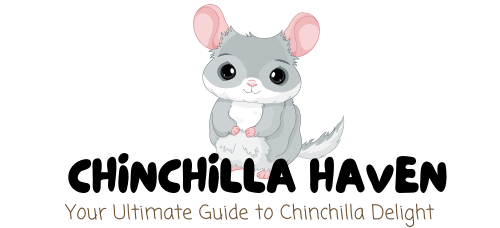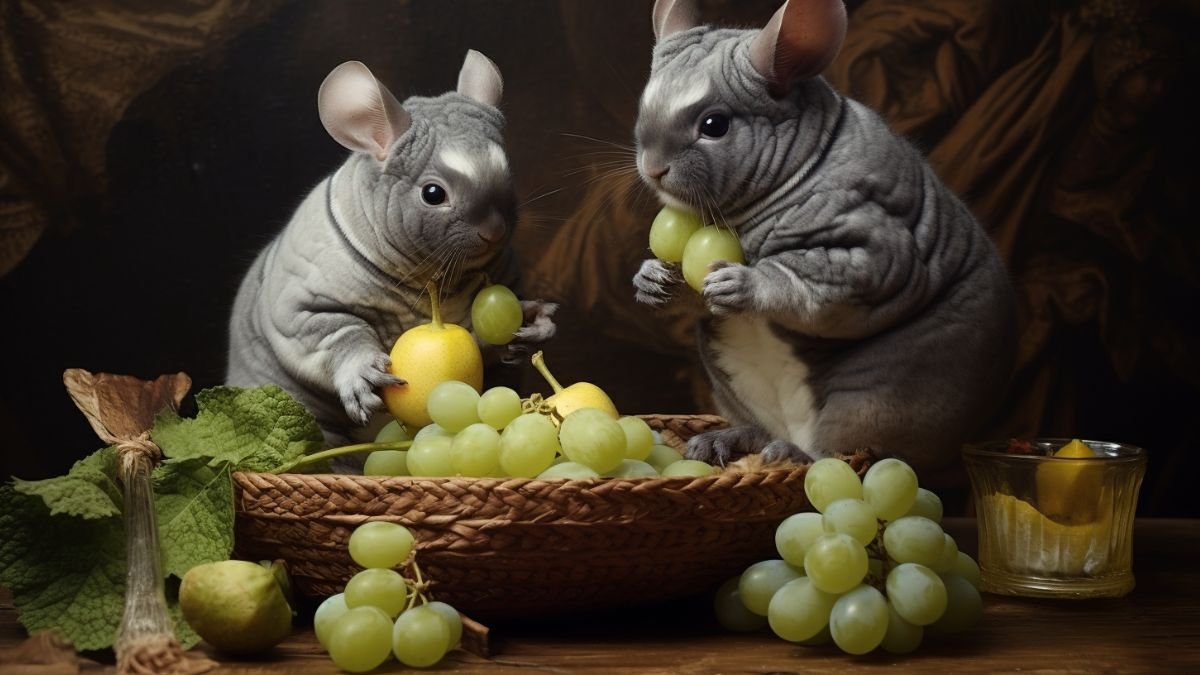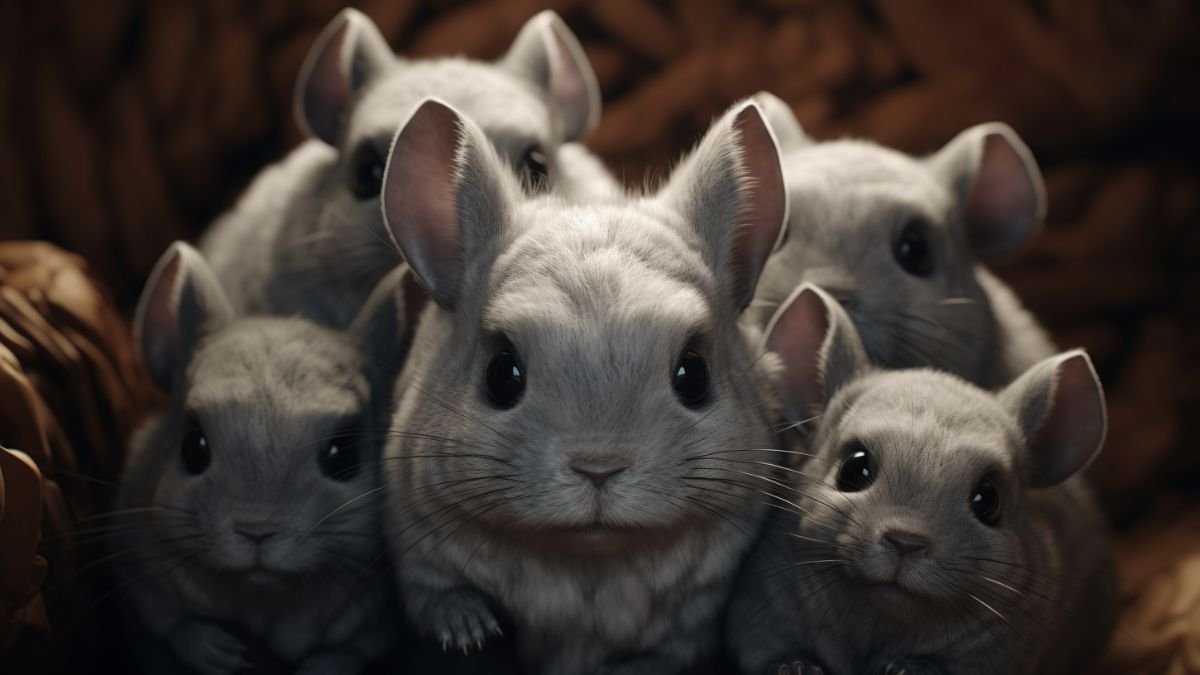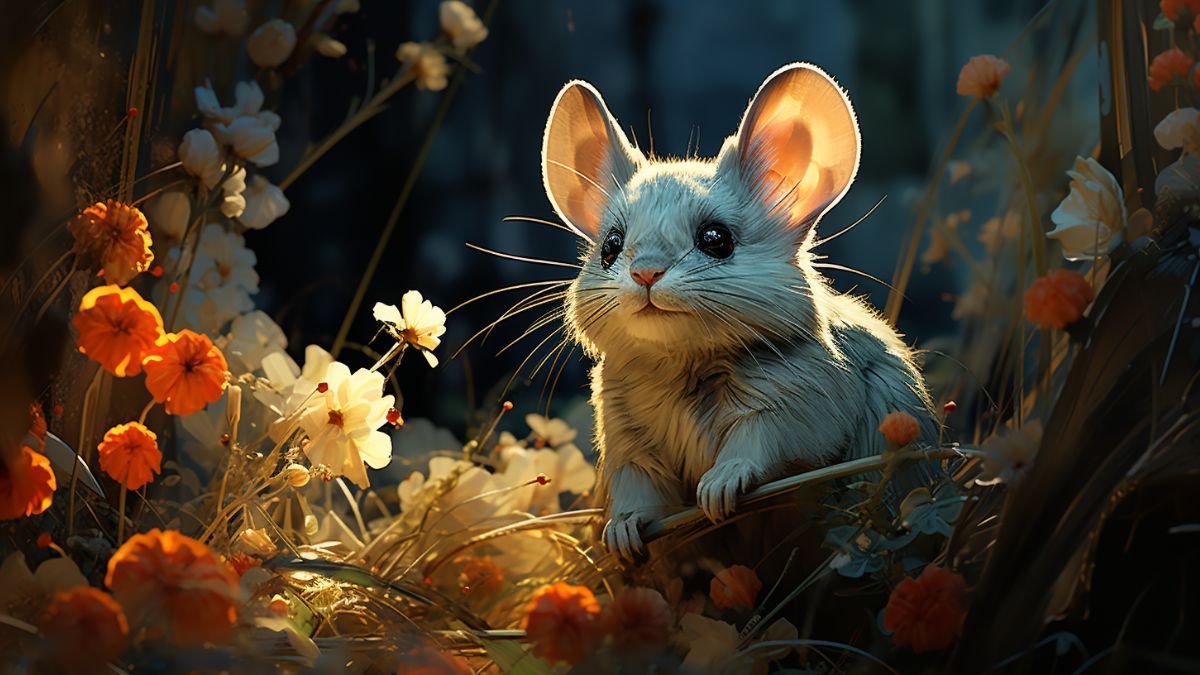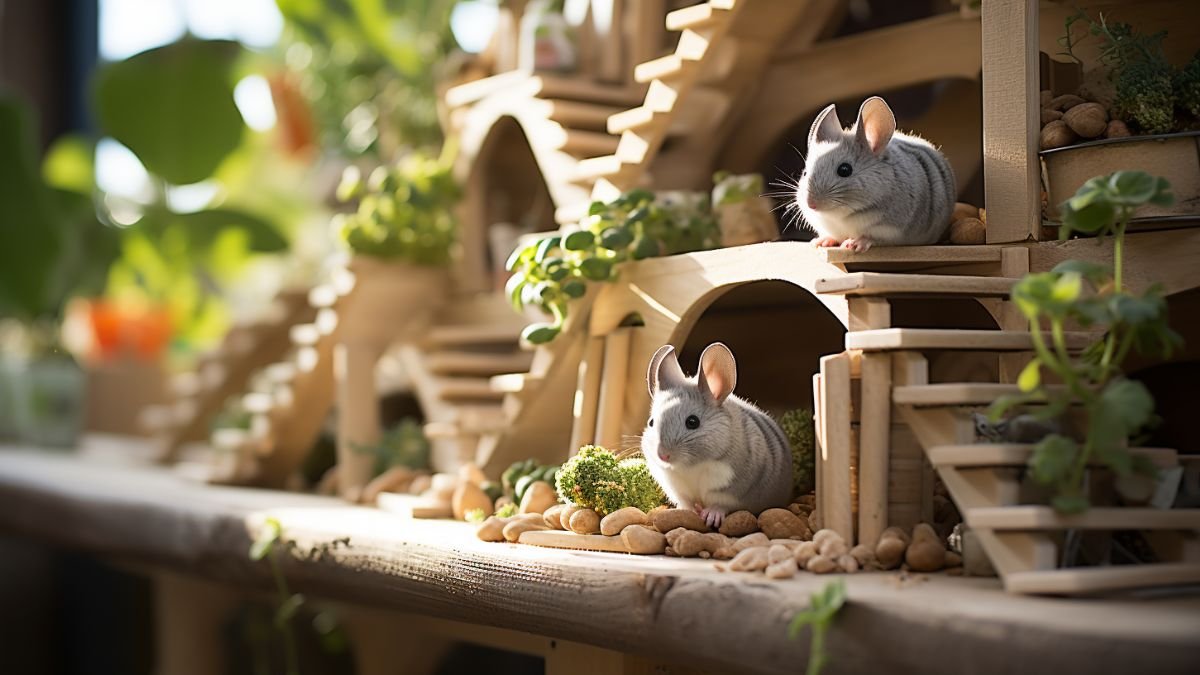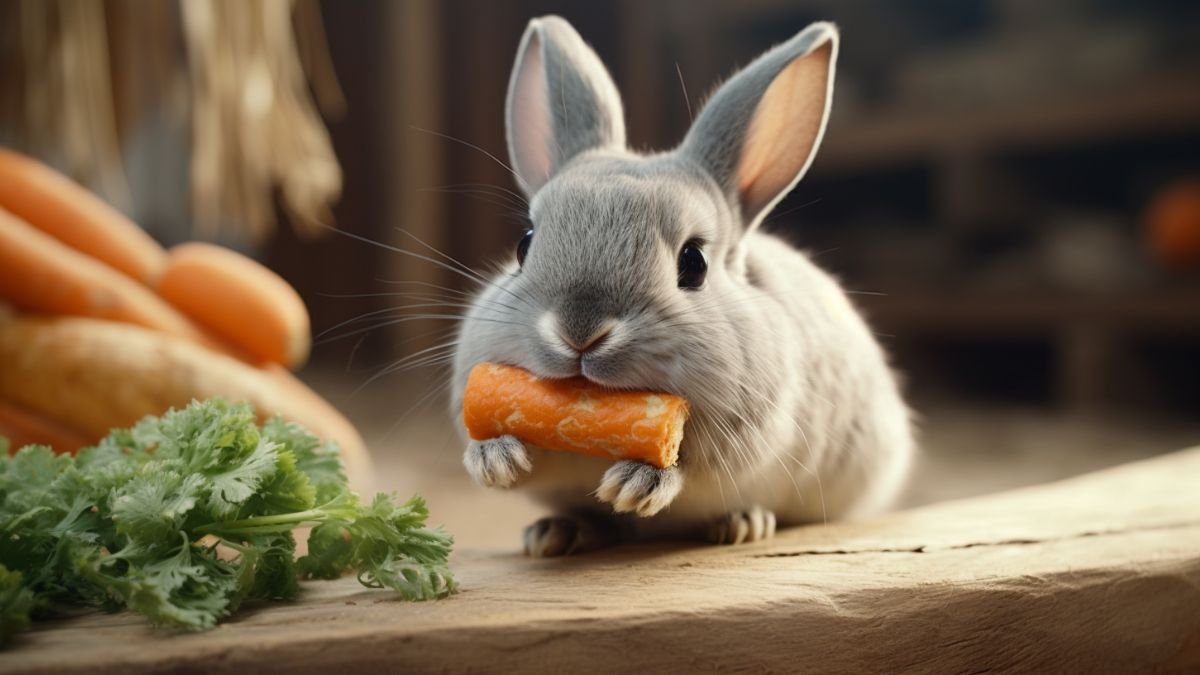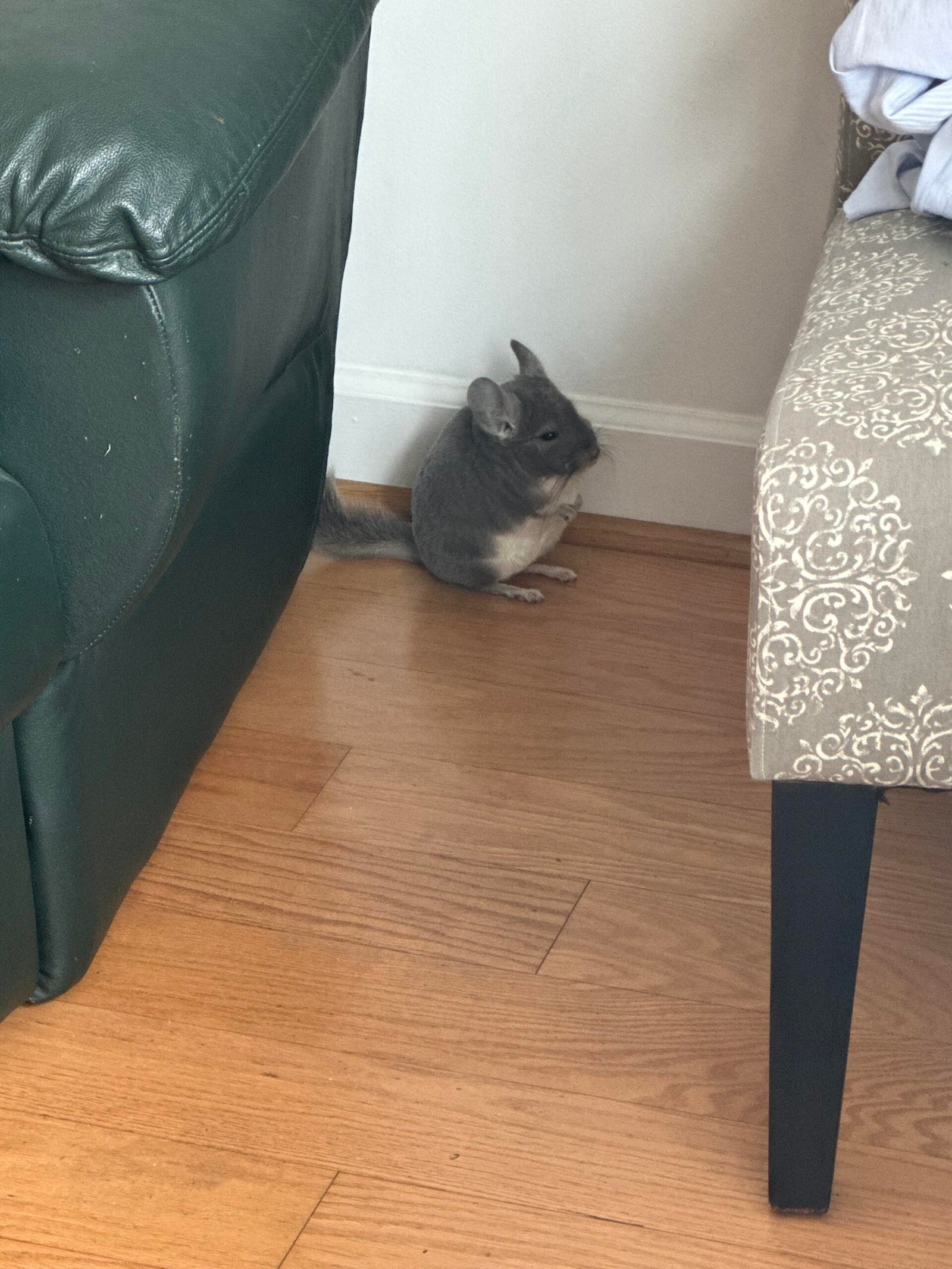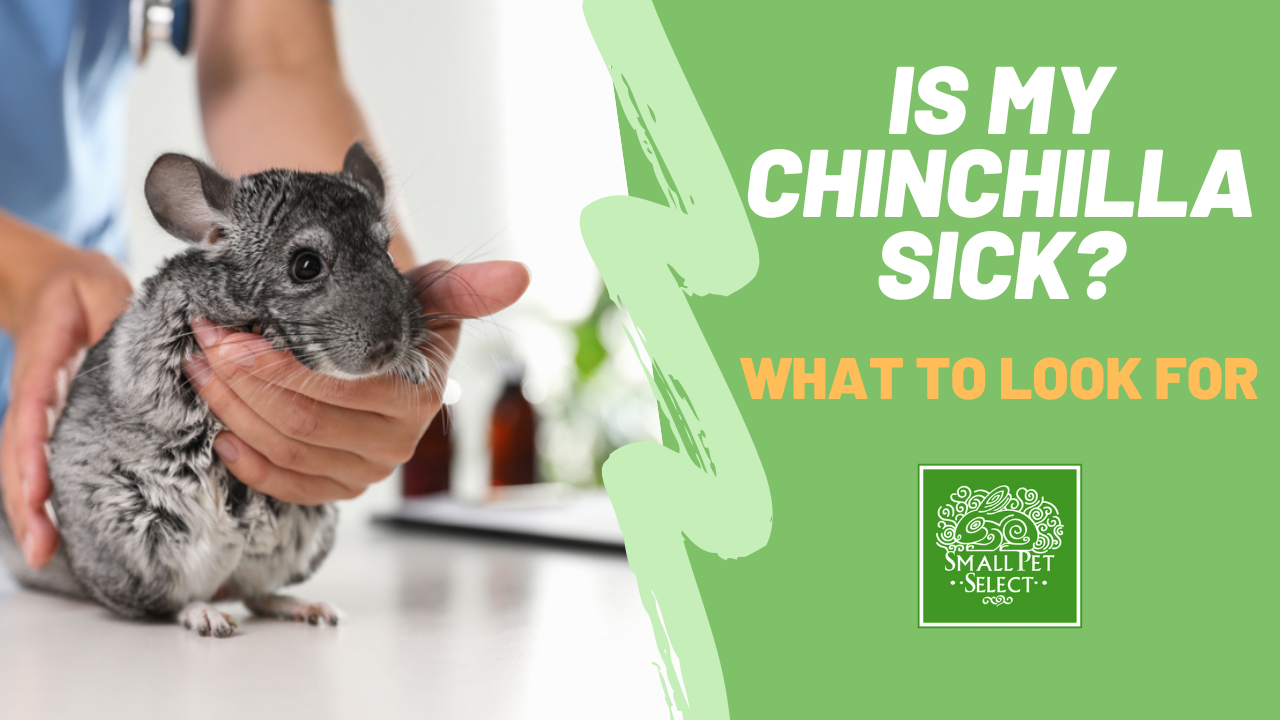
Are you worried your chinchilla might not be getting the right nutrition? Poor diet can quietly harm your furry friend in ways you might not notice at first.
Knowing the signs of poor nutrition in chinchillas can help you act quickly and protect their health. You’ll discover the key symptoms to watch for and learn how to keep your chinchilla happy and strong. Keep reading—your pet’s well-being depends on it.

Changes In Fur Quality
Changes in a chinchilla’s fur quality often signal poor nutrition. Their fur reflects their health and diet. A healthy chinchilla has soft, thick, and shiny fur. Poor diet causes the fur to lose its natural glow and texture. Noticing changes early helps prevent serious health problems.
Dull And Patchy Coat
A dull coat shows lack of essential nutrients. Chinchillas need vitamins and minerals for healthy fur. A patchy coat means fur falls out in spots. This can result from missing nutrients like protein or vitamin E. The fur looks thin and uneven. Such changes need quick attention to improve diet.
Excessive Shedding
Chinchillas shed fur naturally, but too much shedding is a warning. Poor nutrition weakens hair roots, causing more fur to fall out. Excessive shedding leaves bare patches and rough fur. It also makes chinchillas uncomfortable and stressed. Better feeding habits can reduce shedding and restore fur quality.
:strip_icc()/grey-chinchilla-outdoors-651338290-3279ede15f3c4e1f862656d867880d88.jpg)
Weight Fluctuations
Weight changes in chinchillas can signal poor nutrition. This is a key sign that their diet needs attention. Healthy chinchillas maintain a steady weight. Sudden changes can harm their health quickly. Watch for any unusual weight shifts.
Sudden Weight Loss
Soon weight loss shows a problem with diet or health. It can happen if chinchillas eat less or get sick. Poor nutrition often causes quick loss of fat and muscle. They may look thin and weak. Loss of appetite is a common cause. This needs fast action to prevent serious illness.
Unexplained Weight Gain
Weight gain without reason also signals poor nutrition. It can happen if chinchillas eat too many treats or too much food. Excess weight puts stress on their organs and joints. This can lead to other health problems. Balanced diet and portion control help prevent weight gain. Keep an eye on your chinchilla’s weight regularly.
Digestive Issues
Digestive issues are common signs of poor nutrition in chinchillas. Their digestive system is delicate and needs the right food to work well. Problems in digestion often show early and need quick attention. Spotting these signs helps keep your chinchilla healthy.
Diarrhea And Constipation
Diarrhea can happen if chinchillas eat too many fresh foods or sugary treats. It leads to loose, watery stools that can cause dehydration. Constipation appears when they do not get enough fiber. Stools become hard and dry, making it painful to pass. Both conditions show that the diet is not balanced.
Bloating And Gas
Bloating occurs when gas builds up in the stomach or intestines. It makes the belly swollen and tight. Chinchillas may act restless or refuse to eat. Gas can cause discomfort and can be a sign of improper food or sudden diet changes. Monitoring their eating habits helps prevent these issues.
Behavioral Shifts
Behavioral shifts are clear signs that a chinchilla may suffer from poor nutrition. Changes in how your pet acts can show that its diet lacks essential nutrients. These shifts often appear before physical symptoms become obvious. Watching your chinchilla’s behavior closely helps catch problems early. Early action can prevent serious health issues.
Lethargy And Weakness
Lethargy means your chinchilla moves less than usual. It may sleep more and show little interest in play. Weakness makes climbing or jumping difficult for your pet. Poor nutrition can cause low energy and muscle loss. These signs mean your chinchilla’s body is not getting enough fuel. Proper diet is needed to restore strength and activity.
Increased Irritability
A chinchilla with poor nutrition may become more irritable. It might bite or squeak more often than usual. Your pet may shy away from handling or social interaction. Lack of important vitamins and minerals can affect mood. This irritability signals that your chinchilla feels unwell. A balanced diet helps improve calmness and comfort.
Dental Problems
Dental problems are common signs of poor nutrition in chinchillas. Their teeth grow continuously throughout life. Proper diet keeps their teeth healthy and at the right length. Without enough fiber and chewing materials, teeth may grow too long. This causes pain and health issues.
Overgrown Teeth
Chinchillas with poor nutrition often develop overgrown teeth. These teeth may curl or misalign. Overgrown teeth can cause sores inside the mouth. The chinchilla might avoid chewing hard foods. This problem can lead to serious infections if untreated.
Difficulty Eating
Dental pain causes difficulty eating in chinchillas. They may drop food or chew slowly. Weight loss is common due to less eating. Watch for signs like drooling or smelly breath. Early care helps prevent severe dental disease.
Poor Growth In Young Chinchillas
Poor growth in young chinchillas shows that their diet lacks key nutrients. This problem can affect their health and future well-being. Young chinchillas need good nutrition to grow strong bones and muscles. Without it, they struggle to reach normal size and weight. Recognizing signs of poor growth helps catch nutrition issues early.
Stunted Development
Stunted development means a chinchilla is smaller than expected for its age. This happens when it does not get enough vitamins and minerals. Poor nutrition slows down bone and muscle growth. The chinchilla may look weak or less active than others. Stunted growth can cause long-term health problems if not fixed.
Delayed Milestones
Delayed milestones mean young chinchillas take longer to reach normal growth stages. They may start walking, jumping, or eating solid food later than usual. This delay shows their body lacks energy and nutrients. Missing these milestones can affect their ability to explore and learn. Feeding a balanced diet helps chinchillas meet these milestones on time.
Skin And Coat Conditions
Chinchillas need good nutrition for healthy skin and coat. Their fur is thick and soft, but poor diet affects its condition. Watch for changes in skin and fur as signs of nutrition problems. These signs help catch issues early and keep chinchillas healthy.
Dry Or Flaky Skin
Dry, flaky skin is a common sign of poor nutrition in chinchillas. Lack of essential vitamins and fatty acids causes skin to lose moisture. This leads to rough patches and dandruff-like flakes. Healthy skin should be smooth and free of flakes. Check your chinchilla’s skin regularly to spot dryness early.
Frequent Scratching
Chinchillas that scratch often may suffer from skin irritation. Poor nutrition weakens the skin’s defense against itchiness and infections. Scratching can cause redness and hair loss. Notice if your pet scratches more than usual. This behavior signals a need to review their diet and care.
Immune System Weakness
Poor nutrition can weaken a chinchilla’s immune system. This makes it harder for the animal to fight infections and diseases. A weak immune system shows clear signs in chinchillas. Recognizing these signs helps in providing better care and treatment.
Frequent Illness
Chinchillas with poor nutrition often get sick more often. They catch colds, skin infections, or other illnesses easily. Their body cannot fight germs as well as healthy chinchillas. Frequent illness is a strong indicator of immune weakness.
Slow Recovery
After sickness, chinchillas with weak immunity take longer to heal. Wounds may stay open or get infected. Illness symptoms linger for days or weeks. Slow recovery points to poor nutrition and a fragile immune system.
Changes In Appetite
Changes in appetite often signal poor nutrition in chinchillas. Appetite shifts can show early signs of health problems. Watch your pet closely for any eating habit changes. These changes might include eating less or becoming picky about food. Noticing these signs early helps prevent serious health issues.
Reduced Food Intake
Chinchillas that eat less may have poor nutrition. They might skip meals or eat smaller amounts. This can cause weight loss and weakness. Reduced food intake lowers energy and affects overall health. Keep track of how much your chinchilla eats each day. Sudden drops in eating should raise concern.
Picky Eating Habits
Chinchillas usually enjoy a variety of foods. Picky eating means they avoid certain foods or treats. This behavior can lead to missing important nutrients. Sometimes, picky eating signals dental pain or digestive issues. Offer fresh, balanced food and observe what your pet rejects. Noting these habits helps catch nutrition problems early.

Frequently Asked Questions
What Are Common Signs Of Poor Nutrition In Chinchillas?
Poor coat, weight loss, lethargy, and dental problems often signal bad nutrition.
How Does Poor Nutrition Affect Chinchilla Fur Quality?
Their fur becomes dull, thin, and patchy without proper nutrients.
Why Do Chinchillas Lose Weight From Poor Diet?
Lack of essential vitamins and minerals causes unhealthy weight loss.
Can Poor Nutrition Cause Dental Issues In Chinchillas?
Yes, weak teeth and overgrowth happen without balanced diet and fiber.
How Does Diet Impact Chinchilla Energy Levels?
Low-quality food leads to tiredness and less playfulness in chinchillas.
What Behavioral Changes Indicate Chinchilla Malnutrition?
Irritability, less movement, and hiding more often can be signs.
How Long Does It Take To See Poor Nutrition Signs?
Signs can appear within weeks of feeding an unbalanced diet.
What Foods Help Prevent Poor Nutrition In Chinchillas?
High-quality hay, pellets, and fresh water keep chinchillas healthy.
Conclusion
Poor nutrition can harm your chinchilla’s health and happiness. Watch for signs like weight loss, dull fur, or low energy. These clues tell you when their diet needs a change. Feeding them balanced food supports strong bones and good digestion.
Act quickly to avoid serious problems. Caring well helps your chinchilla live a long, healthy life. Keep learning about their needs to give the best care. Small steps make a big difference for your pet’s well-being.
